US says late Taliban leader was planning attacks on Americans
'Pakistani authorities had delivered Mansour's badly burned remains for burial in the western city of Quetta'
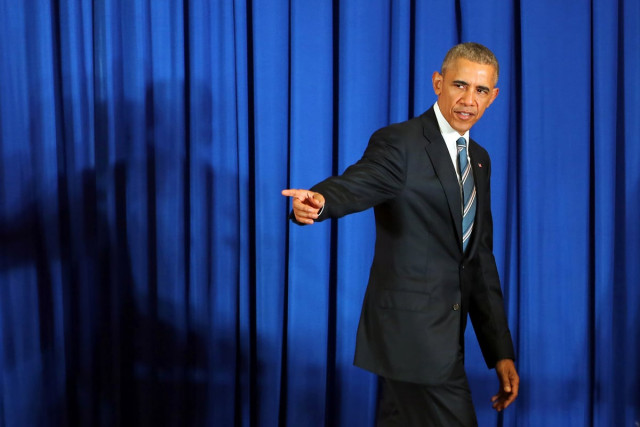
US President Barack Obama leaves the stage after a joint press conference with his Vietnamese counterpart at the International Convention Center in Hanoi on May 23, 2016. PHOTO: AFP
While the Taliban have yet to confirm the death of their leader Saturday in a remote area in Pakistan near the border with Afghanistan, senior members of the insurgency's leadership council met to begin choosing Mansour's successor.
Mullah Mansour or Muhammad Wali: Fake name but genuine credentials on CNIC
Two senior members of the movement also said Pakistani authorities had delivered Mansour's badly burned remains for burial in the western city of Quetta. Pakistani officials, however, denied handing over a body.
US forces targeted Mansour because he was plotting attacks that posed "specific imminent threats" to US and coalition forces in Afghanistan, said Navy Captain Jeff Davis, a Pentagon spokesman. A US official, speaking on condition of anonymity, later specified that the Taliban were planning new attacks against "our interests and our people in Kabul."
He did not elaborate. But the administration hopes Mansour's death will have a long-term impact by pushing the Taliban to end its refusal to engage in peace negotiations with Kabul and "choose the path to reconciliation," the official said.
He expressed hope that the death of Mansour will convince Pakistan to live up to its "rhetoric" and deny safe haven to the Taliban. American intelligence and military officials have long said the Pakistani military supports elements of the insurgency.
But the Taliban's direction is hard to predict and hinges largely on what happens in the leadership contest and in fighting over the summer season. Mansour's death cleared "an obstacle to reconciliation," said one US intelligence official, also speaking on condition of anonymity.
"But it's not clear if it clears the path for reconciliation." A second US intelligence official was more pessimistic. "It's at least equally likely that killing Mansour will destroy any chance to get the Taliban into negotiations with the (Afghan) government, not that there ever was much of one," said the second official, who specializes in South Asia and also spoke on the condition of anonymity. "His successor could be even more loathe to negotiate."
NO SHIFT IN US STRATEGY
Obama confirmed Mansour's death while on a three-day visit to Vietnam, calling it "an important milestone." "The Taliban should seize the opportunity to pursue the only real path for ending this long conflict - joining the Afghan government in a reconciliation process that leads to lasting peace and stability," Obama said.
Frequent traveler Mullah Mansour often visited Karachi
He stressed that the operation against Mansour was not a shift in US strategy in Afghanistan or a return to active engagement in fighting, following the end of the international coalition's main combat mission in 2014.
The US now has 9,800 troops in Afghanistan, and a decision is expected later this year on whether to stick with a timetable that would see their numbers cut to 5,500 by the start of 2017. Pentagon spokesman Davis said the drone strike that killed Mansour was carried out under US rules of engagement that permit the military to conduct defensive strikes.
He said it was the first time to his knowledge that US forces had attacked inside Pakistan under that rule. Previous strikes there were done under US rules on counterterrorism. Pakistani authorities have said the attack was a violation of the country's sovereignty, and an official from the foreign ministry told the US ambassador in Islamabad that the attack could "adversely impact" peace talks.
US military officials said they had discussed their interest in Mansour with Pakistan. Reaction from Islamabad was otherwise relatively muted, and a number of questions remained over what happened.
An undamaged Pakistani passport in the name of Wali Muhammad, which Pakistani authorities said contained a visa for Iran, was recovered next to the burned-out car at the scene of the attack and is believed to have belonged to Mansour.
The Taliban have set up a 10-member commission to try to establish how Mansour was targeted by the US drones, sources within the group said. They said he had crossed into Pakistan from Iran, where he had been holding meetings with Iranian officials and Taliban leaders located there.
According to Taliban officials, the movement has set up offices in Iran, which Mansour used to visit. But the US intelligence officials questioned that account, saying they have seen little credible evidence of close ties between the Sunni Muslim extremist Taliban and Shiite Iran.
A spokesman for the Iranian foreign ministry was quoted on state media denying that such an individual had crossed the border from Iran to Pakistan at the time in question.
LEADERSHIP 'VERY CAREFUL'
Although some individual Taliban members have said that Mansour was killed, the group's leadership, keenly aware of the need to limit splits, has not issued its own confirmation, concentrating instead on naming a successor.
"The leadership is being very careful because one wrong step could divide the group into many parties like former mujahideen," said one Taliban official from the eastern province of Nangarhar, referring to guerrilla leaders who fought the Soviets in the 1980s before splitting into warring factions.
Who will succeed Mullah Mansoor?
Mansour's number two, Sirajuddin Haqqani, leader of the militant network blamed for a series of high-profile attacks in Kabul, and Mullah Mohammad Yaqoob, son of the movement's late founder Mullah Mohammad Omar, are among the main contenders.
Yaqoob initially opposed Mansour's claim to the leadership when his father's death was belatedly made public last year. Choosing a member of Mullah Omar's family would be a means of building consensus, but one of the Taliban officials said Yaqoob was reluctant to take over.
Serious divisions emerged last year when it was confirmed that Mullah Omar had been dead for two years, leaving his deputy Mansour in effective charge of the movement and open to accusations he deceived his commanders.
Haqqani had the backing of Pakistan, while Yaqoob had support among members of the Afghan Taliban, one member of the leadership council, or shura, said.



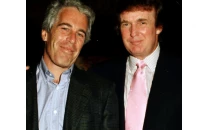
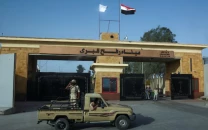
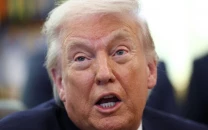
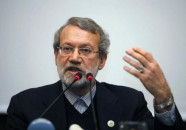












COMMENTS
Comments are moderated and generally will be posted if they are on-topic and not abusive.
For more information, please see our Comments FAQ